Do you have turkeys? These majestic gamebirds are a sight to see and have a lot of benefits when you raise them.
Raising turkeys can be expensive because of the high cost of their feed. To reduce the cost of your turkey feed, you may need to look for alternative food sources and with Halloween coming, you may dispose of a lot of pumpkin seeds and flesh.
Can turkeys eat pumpkins? Turkeys can eat pumpkins. They can eat everything inside of pumpkins including the seeds, flesh, and other slimy parts. No part of the pumpkin needs to go to waste if you have turkeys.
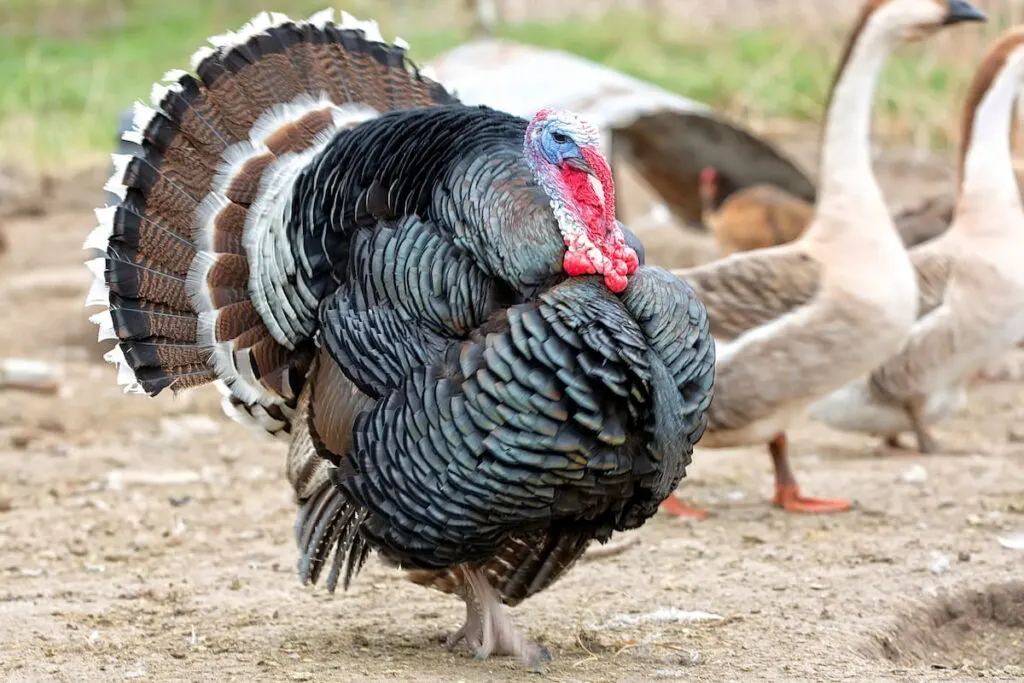
Here is some more information about the nutrition and benefits of pumpkins for turkeys.
Table of Contents
Turkeys Eating Pumpkins
What Nutrients Do Turkeys Get from Eating Pumpkins
The table below shows the nutritional composition of 100g of pumpkin:
| Nutrient | Composition |
| Protein | 1g |
| Carbohydrates | 7g |
| Vitamins | >20g |
| Minerals | >14g |
| Fat | 0.1g |
(Source)
As you can see, pumpkins have a lot of vitamins and minerals for your turkeys. Even though pumpkins are rich in vitamins and minerals, they do not have enough proteins to satisfy all the needs of your turkeys.
According to their age, turkeys need 16-28% of protein in their feed (younger birds need more proteins than other birds). It is clear that even though turkeys can eat pumpkins, they cannot eat pumpkins as their regular diet as pumpkins do not contain sufficient nutrients.
When can turkeys eat pumpkins?
Feeding Turkeys with Pumpkins
Here are ways to feed turkeys with pumpkins:
- Turkeys Love Pumpkin Seeds: Pumpkin seeds contain about 19% protein. You can allow your turkeys to eat the seeds of your pumpkins as an excellent source of protein.
- Everything Inside: Aside from the seeds, pumpkins can eat everything inside the pumpkin. This means that when carving your pumpkins, you do not have to throw anything away if you have turkeys.
- As Treats: Remember that turkeys need a lot of proteins and pumpkins cannot provide every nutrient that your turkeys need. Instead of giving pumpkins to turkeys as their regular diet, give them as treats.
How to Care For Turkeys
Here are some care tips for your turkeys:
1. Provide Clean Water
Do not allow your turkeys to drink dirty or polluted water. If you wouldn’t drink the water, don’t give it to your turkeys. You should wash and clean the water trough of your turkeys daily.
Since turkeys love to search for their food in different parts of the yard, you can place water troughs in more than one location in the yard.
If your yard is near a lake or pond, make sure that the water is drinkable before you allow your turkey to drink from it. Remember that your turkeys can suffer from various water-borne diseases, so you should make sure all water sources are clean.
2. Turkeys Love to Roam and Search for Food
It is not a surprise that turkeys love to roam. You should provide your birds with space for roaming and other activities.
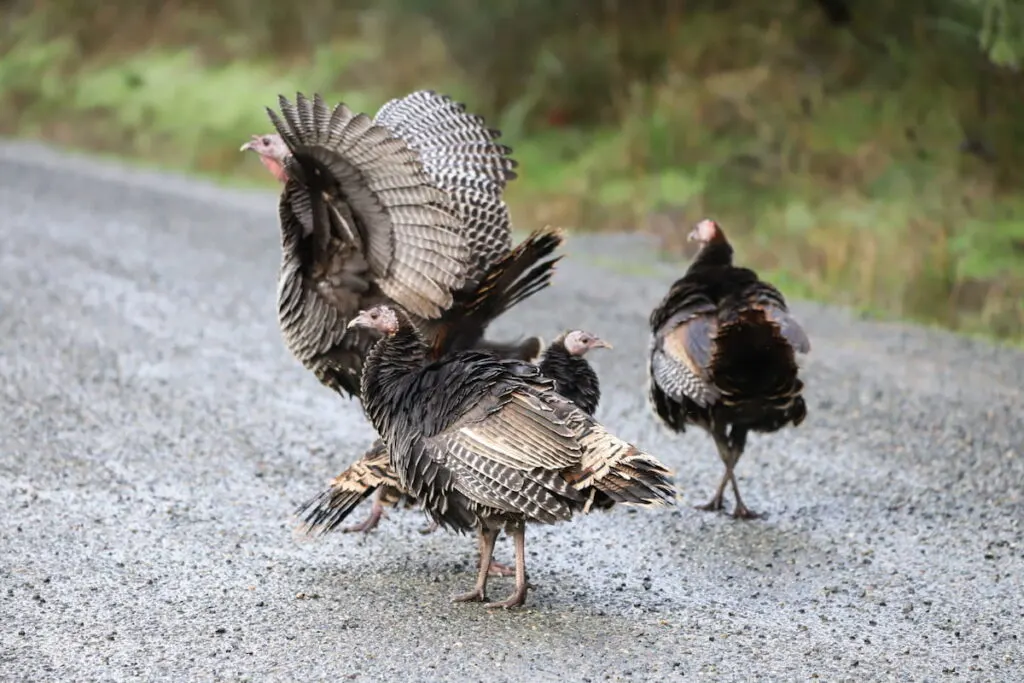
Turkeys love to run, chase little critters, and generally love their space. You should not keep your turkeys in a cage or pen the whole day.
3. Raise Multiple Turkeys
Even though turkeys can live alone, you should raise more than one bird. If you are raising turkeys as farm birds, you need two more birds (of multiple sexes) so that they can reproduce.
Recommended Feed Sources for Turkeys
Here are some recommended feeds for your turkeys:
1. Processed Feed
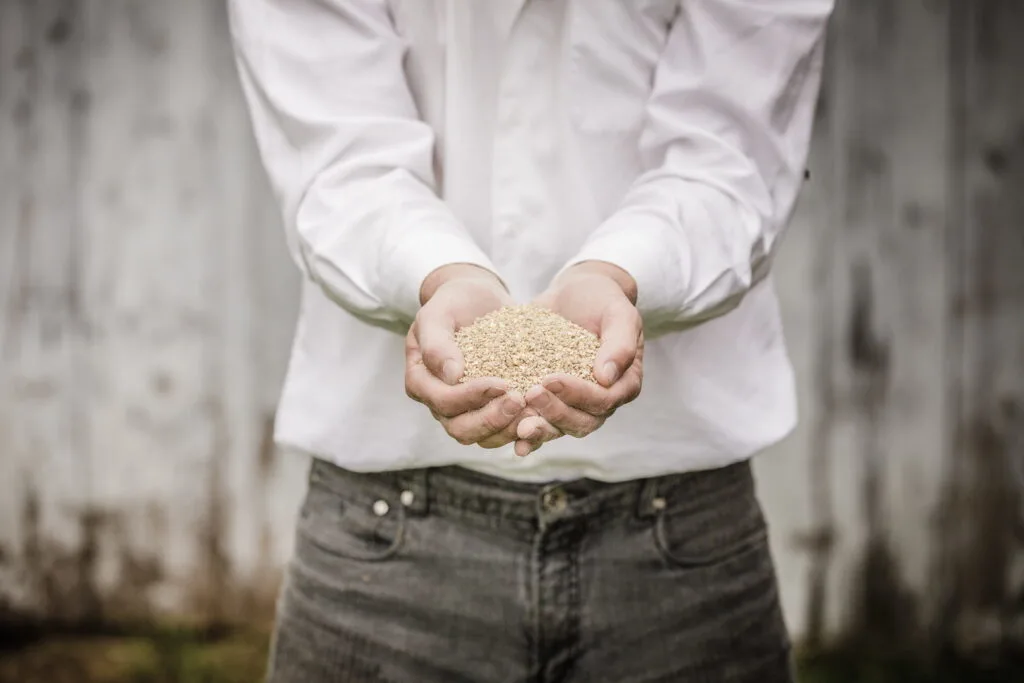
How do you know that you are giving your turkeys the right amount (composition) of nutrients that they need to grow? The best way to tell is by giving them turkey-specific feed or gamebird feed.
The processed feed has sufficient nutrients for your birds according to their age.
You can give processed feed to your turkeys from the day that they hatch until they are ready to be sold. You can buy turkey or gamebird feed from a pet shop or feed mill. Make sure that the feed has enough proteins for your turkey (according to the age of the bird).
2. Seeds and Grains
After processed feed, the next best feed for turkeys is seeds and grains. You should note that most processed feeds are made with grains as well as legumes for your turkeys. Examples of grains that you can feed your turkeys are:
- Wheat
- Barley
- Millet
- Rye
- Maize
Note that grains such as maize have a lot of carbohydrates, so you should only give them to your turkeys as treats (and not actual feed). Some legumes that you can give to your turkeys are soybean meal, peas, etc. Legumes are rich sources of proteins for your turkeys.
3. Fruits and Vegetables
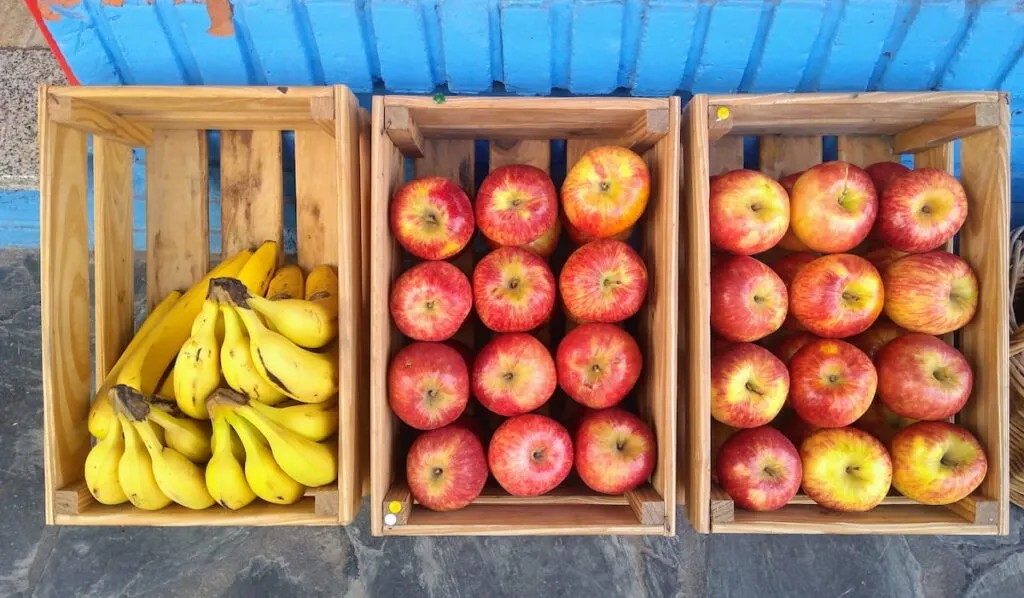
Fruits and vegetables are excellent sources of vitamins and minerals for your turkeys. Turkeys love fruits, but you should give fruits to turkeys as treats only. Fruits usually do not contain enough proteins and are rich in sugars.
Examples of fruits that turkeys can eat are:
- Mangoes
- Bananas
- Kiwi
- Apples
- Watermelons
Turkeys love vegetables. When searching for food, turkeys can eat young leaves and seedlings. Turkeys can also help clear some weed species from your yard. One common plant that other farm animals reject, but turkeys eat is the lemon balm.
Examples of vegetables that your turkeys can eat are:
- Carrot leaves
- Cabbage
- Kale
- Lettuce
- Broccoli
If you have garden plants, you should nurse the seedlings indoors (or far from the reach of your turkeys) before planting them outside to prevent your turkeys from eating them.
4. Kitchen Scraps
Why throw your kitchen scraps away when you can feed them to your turkeys? Turkeys can eat various kitchen scraps. Examples of kitchen scraps that your turkeys can eat are:
- Boiled beans
- Bread Crumbs
- Burnt Rice
- Fruit rinds and peels
- Leaf petioles and vegetable wastes
As you can see, there is a lot of food for your turkeys in the kitchen. Do not throw it away, give it to your turkeys.
5. Bugs and Little Critters
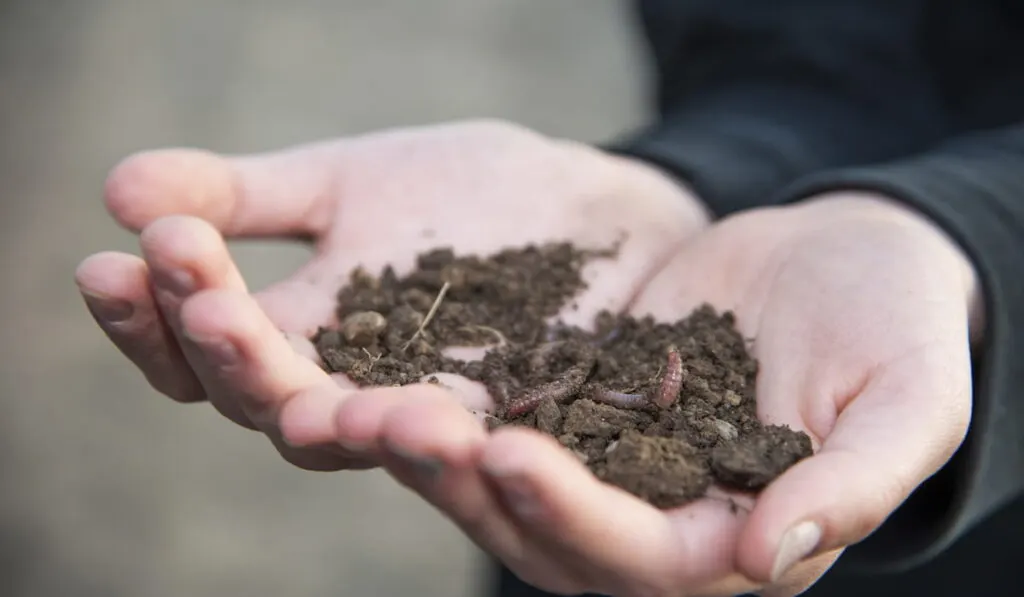
What do turkeys search for when roaming? Turkeys love their bugs. Examples of little critters that turkeys search for and eat are:
- Earthworms
- Snails
- Insects
- Spiders
- Nematodes
Turkeys make great pest control agents, so if you have insect pests in your yard, turkeys can help you take care of them.
If you want to know what NOT to feed turkeys, check this article to know more.
Related Questions and Answers
1. Can Turkey Chicks Eat Pumpkins?
Turkey chicks can eat pumpkins, but remember that they need more proteins to grow their wings as well as develop into adults.
Give your turkey chicks fewer pumpkins and more protein-rich foods.
2. Can Turkeys And Chickens Live Together?
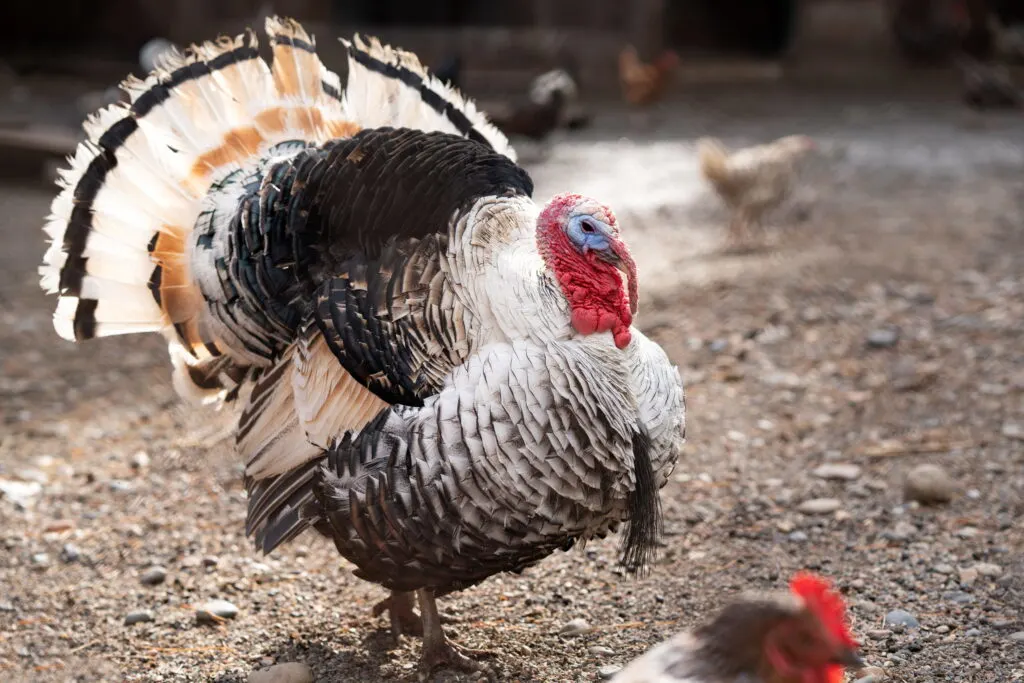
You can raise turkeys and chickens together. Follow the tips below:
- Provide a Roosting Area: Turkeys need a roosting area. You can keep sticks close to their pen. They will climb the sticks and roost there. Chickens will also roost close to the turkeys, so make sure that the roosting area is large enough.
- Raise Fewer Males: Male turkeys and chickens can fight for space, mate, food, etc. Raising fewer males can prevent these regular fights.
- Provide Sufficient Feed and Space: You will find it easy to raise multiple birds in the same pen so long as there is enough space and feed for them.
Make sure that you prevent your birds from fighting.
3. Can Turkeys Eat Chicken Feed?
Turkeys can eat chicken feed, but chicken feed usually has fewer proteins than what turkeys really need.
You should give your turkeys and chickens natural feeds such as maggots, grains, legumes, etc. instead of processed feed to prevent waste.
Final Thoughts
Turkeys can eat pumpkins but as treats.
Do not give only pumpkins to turkeys as pumpkins do not provide sufficient proteins to satisfy their dietary needs. It is safe for them to eat all parts of pumpkins as treats.
Remember to give them protein-rich feeds such as processed feed, seeds, legumes, bugs, etc.
Resources
- https://www.poultryhub.org/all-about-poultry/nutrition/nutrient-requirements-of-turkeys
- https://www.raising-happy-chickens.com/feeding-chickens-pumpkins.html
- https://wickedcamo.wordpress.com/
- https://couchtohomestead.com/do-chickens-eat-pumpkin-plants/
